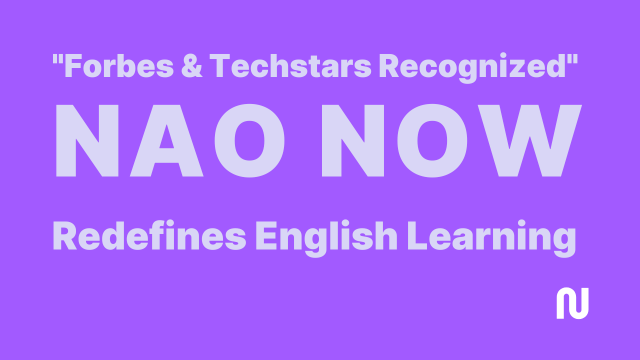Why Consider Elementary School Study Abroad Now? A Complete Guide







Hello! Many parents ask me these days: "How can I help my child become proficient in English?" "When should we start preparing for study abroad?" "Isn't it too early?"
These concerns are completely understandable. In our global era, English has become a necessity, not an option, and there's growing pressure for our children to learn a living language they can actually communicate with, rather than just memorizing grammar and vocabulary.
The expected benefits of early study abroad are clear. Children exposed to an English environment at a young age have excellent language acquisition abilities and can develop a global mindset by experiencing diverse cultures. It also helps them foster creativity and independence.
However, the most crucial aspect is "when, where, and how to send them." Rather than simply sending them early, it's far more important to have a clear goal and prepare systematically, considering your child's personality and your family's situation. Today, I'll comprehensively cover everything parents are most curious about, from preparing for elementary school study abroad to choosing the right timing, essential items, and recommended types of programs.
When Is the Best Time for Elementary School Study Abroad?
Many education experts say there's no absolute "golden time" for study abroad. It depends on your child's personality, family circumstances, and the purpose of the study. However, the most commonly considered periods for elementary school study abroad are the early grades (1st-3rd grade) and later grades (4th-6th grade).
Pros and Cons of Early Elementary Study Abroad
Grades 1-3 are often called the "golden age" for language acquisition. Children at this age absorb new languages like sponges.
Advantages include:
- Optimal Language Acquisition: Children naturally pick up English patterns without explicitly learning grammar, and their pronunciation can become native-like. We often see children aged 6-7, after about six months in an English-speaking country, speaking with near-native pronunciation.
- Excellent Cultural Adaptability: Their curiosity often outweighs their fear of new environments, allowing them to quickly bond with local friends and naturally embrace the local culture. They also gain the benefit of learning language and culture simultaneously through children's play.
- Full Adaptation to Local Education System: Early study abroad lays the groundwork for them to compete on equal terms with local students when they later enter middle school, high school, or university.
However, there are also clear disadvantages:
- Absolute Need for Parental Emotional Support: Children at this age often lack independent living skills and are still developing emotional regulation in stressful situations. Being separated from parents can lead to homesickness or emotional instability.
Pros and Cons of Later Elementary Study Abroad
Grades 4-6 are when children develop more independent thinking. They can express their opinions clearly and somewhat understand the purpose of study abroad.
Advantages include:
- Higher Academic Comprehension: They don't just learn a language; they learn English through subjects. By studying subjects like math, science, and social studies in English, they also develop academic English skills.
- Awareness of Study Abroad Purpose: They can independently understand "why they are studying abroad" and "what they need to learn," setting their own goals. This directly correlates with learning motivation, leading to higher learning effectiveness.
- Seamless Transition to Middle School Study: Starting study abroad in the later elementary grades allows for a consistent educational flow into middle school and high school.
However, disadvantages should also be considered:
- Slower Language Acquisition than Early Grades: Since their Mother language system is already established, language interference may occur when learning English, and acquiring native pronunciation or accent may take more time.
Elementary Study Abroad Preparation Checklist
Preparing for elementary school study abroad involves more than just improving English skills. It requires systematic and comprehensive preparation.
1. Define Study Abroad Goals and Budget
The first step is setting clear goals.
- Do you want a short-term experiential study abroad? These are typically 2-3 month programs during vacations, focusing on language and cultural immersion. The cost is relatively low, but continuous benefits might be limited.
- Are you considering long-term academic study abroad? This involves officially enrolling in a local school for a year or more, allowing for structured education and deep cultural experiences. However, it's more expensive and requires a significant family decision.
You also need a detailed budget plan. Tuition fees vary greatly by country and school type. US private schools might cost $30,000-$50,000 annually, while Canadian public schools are around $10,000-$20,000. Living expenses vary significantly by city and region; expect $2,000-$3,000 per month in large cities like New York or London, and $1,000-$2,000 in smaller cities.Consider visa costs as well. Visa application fees, medical exam fees, and document preparation typically range from $500-$1,000. Airfare depends on the season and airline but anticipate around ₩1,000,000-₩2,000,000 for a round trip, and insurance around $50-$100 per month.Among the elementary school study abroad essentials, sufficient funds are paramount. It's advisable to prepare an additional 20-30% of your estimated costs as an emergency fund.
2. Choose Study Abroad Country and School
English-speaking countries offer an immersive environment for natural language acquisition.
- United States: Offers diverse educational programs and many prestigious universities, making it attractive for long-term prospects. However, costs are high, and safety concerns like gun violence or drug issues should be considered.
- Canada: Relatively safe with a high standard of education and favorable immigration policies. However, winters can be long and cold.
- Australia: Popular for its mild climate, safe environment, and structured education system. However, it's geographically distant, and large time differences can make communication with family difficult.
- New Zealand: Boasts excellent natural environment and education system. However, its small population might limit diversity.
School choice is also crucial.
- Public Schools: Generally more affordable and offer more opportunities to interact with local students. However, support programs for international students might be limited.
- Private Schools: Provide excellent educational environments and small class sizes. However, costs are higher, and admission requirements are stricter.
- International Schools: Allow interaction with students of various nationalities and offer international curricula like the IB program. However, costs are very high, and local cultural immersion might be limited.
3. Prepare Essential Documents and Visa
Among the elementary school study abroad essentials, document preparation takes time, so start at least 6 months in advance.
- Passport: Must be valid for at least 6 months. Children's passports need renewal every 5 years, so check in advance.
- Letter of Acceptance: An official document issued by the school, essential for visa applications. You'll receive it after meeting admission requirements and submitting all necessary documents.
- Proof of Funds: Documents proving you have sufficient funds for the duration of the study. This includes bank statements, income certificates, and property ownership documents.
- Transcripts: English translations of school transcripts for the past 2-3 years. Must be official transcripts issued by the school and notarized.
- Vaccination Records: Check the specific vaccination requirements for each country and prepare accordingly. MMR, DTaP, and polio vaccines are typically required by most countries.
- Health Certificate: Often required. You'll need to get an examination at a designated hospital and receive the results in English.
- Notarization and Translation: Documents requiring notarization or translation should be handled by a notary public or translation office. This process can be time-consuming, so prepare in advance.
4. Establish Living Arrangements (Accommodation, Safety, Cultural Adaptation)
Accommodation choice should be based on your child's age and personality.
- Homestay: Living with a local family allows for natural language and cultural learning. It's especially good for elementary students as it provides emotional stability in a family-like environment. However, the experience can vary greatly depending on the host family, and privacy might be limited.
- Boarding School: Offers opportunities to socialize with peers and develop social skills. However, supervision might be insufficient for elementary students, so it's generally not recommended.
- Parent-Accompanied Study: Provides both emotional stability and academic support. This is the safest option, especially for early elementary students. However, it requires significant sacrifice from the parent and higher costs.
- Guardian Study Abroad (Managed Study): A local study agency or management company handles accommodation, meals, and general living arrangements for the child. It offers professional supervision but comes with higher costs and limited autonomy.
Safety management is also crucial. Establish local emergency contacts, arrange health insurance, and prepare safety education beforehand.Cultural adaptation preparation is also necessary. Learn about the local culture and customs in advance to reduce stress caused by cultural differences.
Which Type of Study Abroad Suits Our Child Best?
The recommended type of elementary school study abroad varies depending on your child's personality and your family's situation. Carefully consider the pros and cons of each type before making a decision.
Parent-Accompanied Study Abroad
Parent-accompanied study abroad is generally the safest and most effective option, especially for early elementary students.
- Pros: Provides the highest level of emotional stability. Parents can be there to support and guide their child through the adaptation process. They can directly assist with language learning, and respond immediately to any difficulties in school life or friendships. Close academic support is also possible, leading to better academic performance.
- Cons: Requires significant sacrifice from parents. They might have to quit or take leave from their jobs and be separated from family. Costs are higher due to added living expenses for the parent and accommodation. The child's independence development might be slower due to parental reliance.
Homestay Study Abroad
Homestay involves living with a local family, allowing for natural language and cultural learning.
- Pros: Optimal language environment. Living in an English-speaking environment 24/7 allows for natural acquisition of everyday conversational skills, especially through family interactions. Provides deep cultural immersion by experiencing the local lifestyle, eating habits, and customs firsthand. Emotional support can be gained from a good host family who might care for the child like a second family. Costs are relatively lower as meals and accommodation are included.
- Cons: Experience varies greatly depending on the host family. A good family can provide the best experience, but a poor match can cause significant stress. Privacy might be limited when living in someone else's home. Cultural differences in eating habits, lifestyle, or educational approaches can lead to conflicts.
Managed Study Abroad (Guardian Study Abroad)
Managed study abroad involves a local study agency or management company overseeing the child's overall daily life.
- Pros: Offers professional management, including academic, daily life, and health supervision by experts. Safety management is thorough with 24-hour monitoring. Provides peace of mind for parents through regular reports and consultations on the child's situation. Children can socialize with other abroad students in similar situations, providing emotional stability.
- Cons: Higher costs due to additional management fees. Autonomy might be limited as children must follow set rules and schedules. Local cultural immersion might be restricted if children primarily interact with other abroad students. Excessive protection could hinder the development of independence.
Smart Ways to Build English Skills Before Study Abroad: Nao Now
The key to successful study abroad is preparation. No matter how good the environment, it's hard to adapt without foundational skills. English proficiency, in particular, affects every aspect of life abroad, so preparing in advance is crucial. Nao Now is an English learning solution perfectly suited for parents considering elementary school study abroad.
1. Real-Time Conversation-Focused Classes with Ivy League Mentors
Nao Now's classes are led by excellent mentors from Ivy League universities like Harvard, Yale, and Princeton. They are not just fluent in English but are also experts trained in specialized teaching methods for children. The conversation-focused approach means children learn English naturally through real dialogue rather than just grammar explanations. If a child makes a mistake, mentors gently provide the correct expression, guiding them to self-correction.
2. Engaging Class Topics Based on American Culture
Children often dislike boring classes. Nao Now offers diverse and engaging topics. For example, in a slime-making class, ingredients are explained and the process discussed in English. Children learn English naturally through play. In a pancake baking class, they learn practical everyday expressions while explaining the cooking steps. White House stories or sports topics like Steph Curry's basketball shots allow children to learn about American history and culture while improving their English, aiding greatly in cultural adaptation during study abroad.
3. Increased Engagement with 3D Metaverse Classrooms and AI Feedback
Today's children are digital natives. They prefer fun, game-like environments over typical video calls. Nao Now's 3D metaverse classrooms allow children to participate as avatars. They create their own avatars and enter virtual classrooms, engaging in classes as if playing a game, which significantly boosts their concentration. The AI feedback system analyzes their pronunciation, intonation, and grammar in real-time, providing immediate feedback for effective learning.
4. Level-Based Curriculum and Cultural Exchange Content
Not all children have the same English proficiency. Nao Now accurately assesses each child's current level and provides a customized curriculum. Systematic learning is possible from beginner to advanced levels. The cultural exchange content is particularly impressive. Children don't just learn English words and grammar; they also learn about real American culture and lifestyle, which helps reduce cultural shock and promotes quick adaptation after study abroad.
5. Strict 7% Mentor Selection Criteria
One of Nao Now's biggest strengths is its exceptional team of mentors. Only 7% of applicants pass the rigorous selection criteria. Being proficient in English is not enough; candidates are comprehensively evaluated on their teaching philosophy, patience, and communication skills. Beyond academic excellence (e.g., Ivy League background), their ability to connect with children is highly valued.
Parents who have experienced the classes say:
- "My child says it's fun to speak English for the first time."
- "My child used to hate English classes, but now they look forward to Nao Now classes. Because they learn in a fun, game-like way, they actively try to speak English. In just six months, they can naturally have everyday conversations."
Children Discover Themselves Speaking English Without Realizing It
The most important outcome is that children gain confidence in English themselves. As English comes out naturally, not forced, they are surprised by themselves. Seeing children proudly realize, "Oh? I'm speaking English!" is incredibly rewarding. This sense of accomplishment fuels continuous learning motivation.
Prepare Your English Skills Before Study Abroad with a Free Nao Now Trial Class
It's natural to wonder, "Will this really suit my child?" That's why Nao Now offers a free trial class. Through the trial, you can accurately assess your child's current proficiency and confirm if the teaching method suits them. You can decide without any pressure after the free trial.
Elementary School Study Abroad: The Key to Success Is 'Planning and Preparation'
I've covered everything about elementary school study abroad. While the content might seem extensive, the core message is simple.
- First, the right timing is crucial: You must decide by comprehensively considering your child's personality and maturity, as well as your family's situation. Too early might lead to emotional issues, while too late could miss the advantages of early language acquisition. Early grades excel at language absorption but need emotional support; later grades are more independent but might have slower language acquisition. There's no single right answer, but finding the optimal timing for your child is key.
- Second, thorough advance preparation is essential: Study abroad isn't just going to a foreign country; it's a strategic choice for success in a new environment. You need to systematically prepare everything from goal setting and budget planning to school selection, document preparation, and establishing living arrangements. Among the elementary school study abroad essentials, document preparation takes a long time, so it's best to start at least 6 months in advance. Rushing can lead to mistakes and might prevent you from departing at your desired time.
- Third, choose a customized study abroad type: Parent-accompanied, homestay, and managed study abroad all have their pros and cons. You must choose the most suitable type by comprehensively considering your child's personality, age, and family situation. There's no single answer. Parent-accompanied might be best for one child, while homestay could be better for another. The important thing is to make the right choice for your child.
- Fourth, prepare English skills and cultural adaptation in advance: No matter how good the environment, it's hard to adapt without foundational skills. English proficiency, in particular, affects every aspect of academics, friendships, and daily life. It's crucial to develop actual conversational abilities, not just memorize grammar and vocabulary. You should also learn about the cultural background along with the language.
- Fifth, continuous interest and support are necessary: Sending your child abroad isn't the end. You need to continuously check and support whether your child is adapting well, keeping up with academics, and feeling emotionally stable. Elementary students, especially, are still immature and absolutely need parental interest and support. Regularly contacting, visiting, and consulting will help you understand your child's situation and provide necessary help.
With Nao Now, English Skills and Cultural Adaptation Before Study Abroad Are All Possible
Ultimately, the success of study abroad depends on preparation. English proficiency, in particular, is a core factor affecting every aspect of life abroad. Nao Now doesn't just teach English; it provides everything children preparing for study abroad need. It comprehensively develops not only language skills but also cultural understanding, confidence, and communication abilities. With excellent Ivy League mentors, children learn engagingly in a 3D metaverse environment, and AI feedback ensures accurate skill improvement. Most importantly, children gain confidence in English and start communicating naturally, which is the biggest advantage.
Elementary school study abroad is a crucial choice that can change your child's future. However, thorough preparation is essential for success. Especially, English proficiency is key to study abroad success, so preparing in advance is truly important.
Start your study abroad preparation with Nao Now. It will be the first step towards your child's bright future. If you need more detailed information about study abroad or personalized consultation, please don't hesitate to contact us. Let's work together to help our children grow into global talents!



.png)





.png)
.png)
.png)

.png)